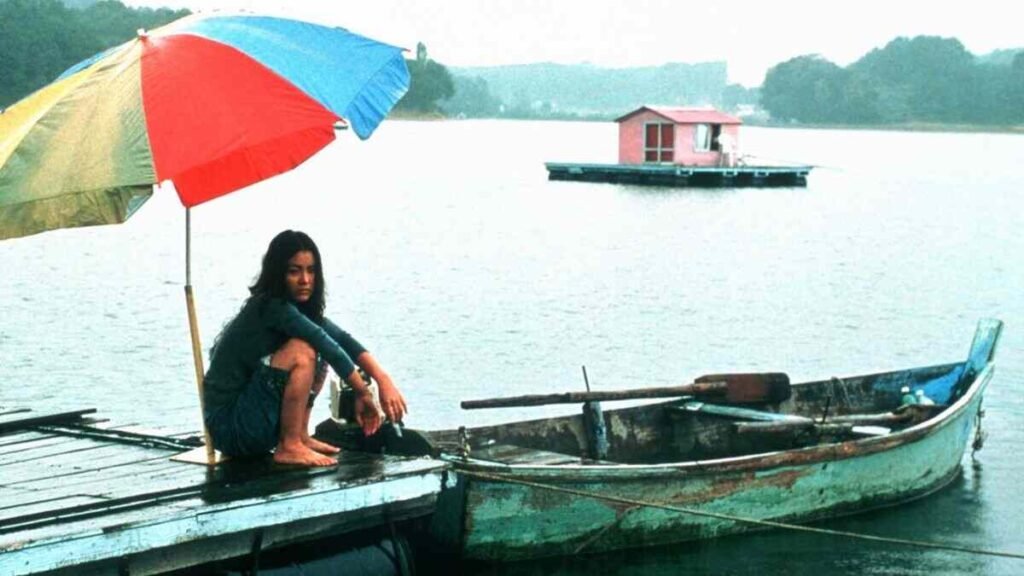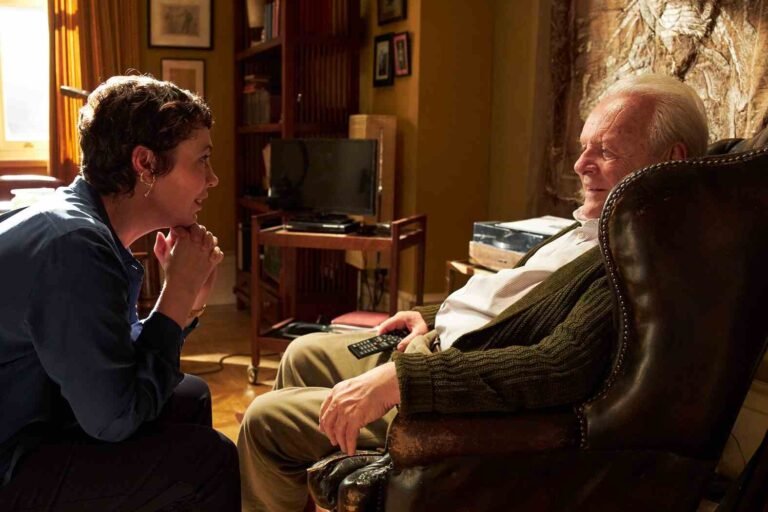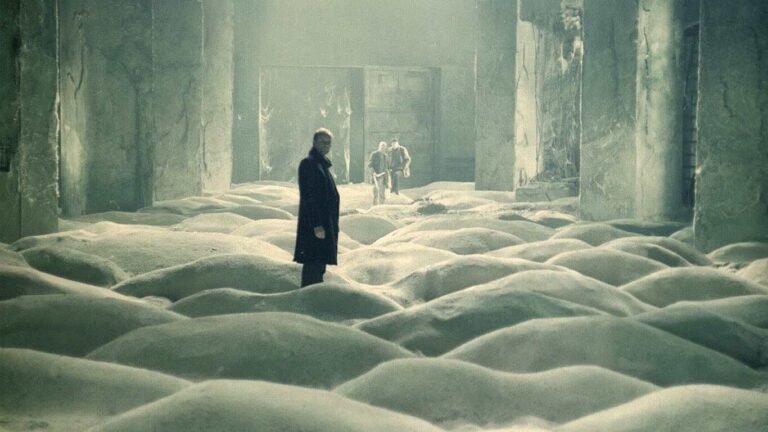

Before Sunrise
A chance encounter, leading to one beautiful night in Vienna that defies time and space.


Kim Ki-duk’s The Isle has challenged me in ways no movie has ever done before. I’ve spent weeks trying to reach some form of consensus but no matter how hard I try, nothing quite comes together. Most of me wants to hate it; the animal violence depicted is unacceptable (more on that later) and the characters presented are irredeemable. It’s a nasty film. But it’s also a bleakly beautiful film. Underneath the brutal violence and delinquency, there is a serenity to be found. A secluded corner of watery solitude. A long-forgotten haven where tranquillity prevails but nightmares lie in waiting beneath the surface.
The juxtaposition of beautiful scenery and inhumane cruelty makes The Isle’s brutality feel even more visceral, for better and for worse. Two equally lost and broken humans connect through their barbarity. Both desperate to satisfy their desires, a two-way battle for possession ensues. Visually aided by some shocking uses of fishing hooks, they each attempt to reel the other in to succumb to their will. All of this left me with a feeling of distaste though, especially in light of the allegations made towards Kim. With this knowledge, it’s hard to see the cruel treatment of women as anything other than the director’s fantasy.
As much as I have tried to separate my views on animal Violence from my review of this film, it needs to be addressed. There are multiple scenes of animals such as dogs, fish and frogs being abused, tortured or skinned alive. As you can imagine, this was incredibly hard to watch and stuck with me for weeks. It also most certainly negatively impacted my experience of watching the film. I don’t believe in animals being killed for food, let alone for art/entertainment. I realise that I’m in the minority and that other cultures have different views on this though, so I decided to research why Kim Ki-duk found it necessary to kill for his film. One of his justifications for the violence was:
“We cooked all the fish we used in the film and ate them, expressing our appreciation”.
So it seems as if he believes that consuming the animals that he’s killed on-screen makes up for the act. Digging deeper, I found an interview where he gives his viewpoint in more detail:
“The way I see it, the food that we eat today is no different. In America, you eat beef, pork, and kill all these animals. And the people who eat these animals are not concerned with their slaughter”.
A fair point; if you eat meat, are you in a position to criticise other cultures doing the same? Kim sees all animals as equal so doesn’t view the abuse depicted in The Isle as any different to what happens already in the food industry. As far as I can tell, the laws on animal cruelty in South Korea are more relaxed than I’m used to here in the UK, especially at the time of release. The animal protection act that passed there in 1991, and was in force until new amendments in 2007, never explicitly prevented animal cruelty to fish or amphibians. This explains its allowed use in the film. Since then, South Korea has adopted stricter and more detailed acts, and general views on animal cruelty are changing.
As someone who doesn’t eat meat, I’m yet to see a valid reason as to why the killing had to be so brutal, or even necessary at all. A live fish is cut open in one scene, partly eaten (raw), and then released back into the lake to suffer. Whether the fish is eaten afterwards or not, it clearly experienced a lot of pain. And that’s just one scene out of many. To put this into perspective, would any of you reading accept similar treatment to a dog? It’s certainly not necessary to the film, especially at a time where technology and filmmaking can replicate the same act. For this reason, I don’t feel like I am in a position to provide a rating for this movie. It has gone past what I find acceptable for media. I’m open to discussion on this topic so feel free to comment with your thoughts.
There were aspects of The Isle that I liked but I certainly won’t be returning to it again. It felt like a big mismatch between me and the director’s values. I obviously can’t recommend this film at all but the consensus suggests that it’s worth checking out. If you do, make sure you’re prepared.


A chance encounter, leading to one beautiful night in Vienna that defies time and space.


Abstract, thrilling and utterly bonkers – Holy Motors is a wild ride set within the heart of Paris.


A devasting and labyrinthic look at dementia told from the perspective of an ageing man who has it


Carax presents a beautiful and harrowing tale of love, in a most unlikely place.


Andrei Tarkovsky’s mind-bending journey through a post-apocalyptic landscape still manages to impress today


Surreal, existential and transcendent cinema from Jonathan Glazer. Under The Skin follows an alien prowling the streets of Glasgow luring in unsuspecting men…